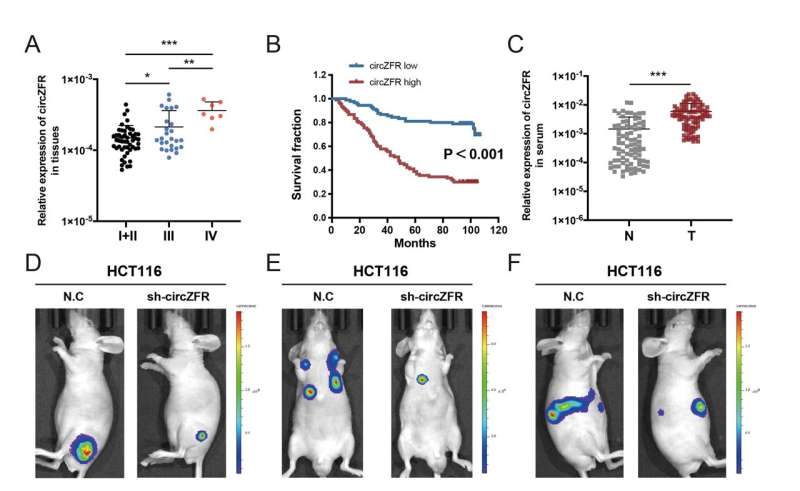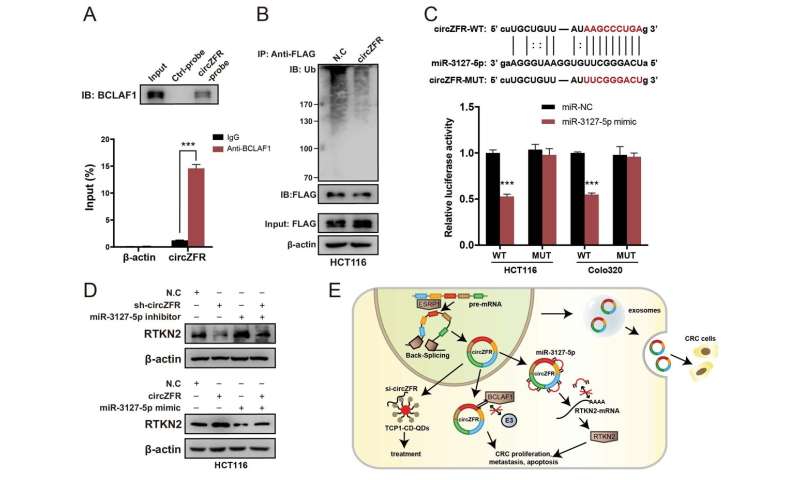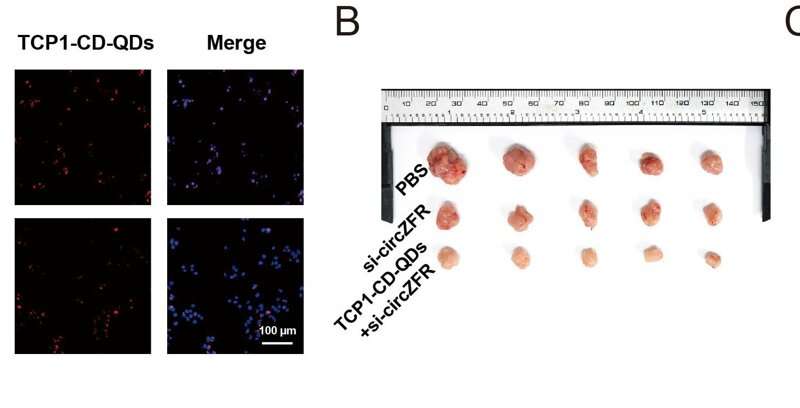This article has been reviewed according to Science X's editorial process and policies. Editors have highlighted the following attributes while ensuring the content's credibility:
fact-checked
peer-reviewed publication
trusted source
proofread
Research confirms circZFR is a promising biomarker for colorectal cancer diagnosis and prognosis

In a study published in the journal Science China Life Sciences, a research team identified circZFR using circRNA microarray and competing endogenous RNA (ceRNA) microarray, and they confirmed that circZFR is a promising biomarker for colorectal cancer (CRC) diagnosis and prognosis.
Currently, the morbidity and mortality of CRC remain high due to the lack of early symptoms and effective early screening technology. Metastasis and recurrence remain the most common causes of death related to CRC. Therefore, it is crucial to find novel biomarkers for CRC diagnosis and prognosis, as well as unravel their mechanisms of action.
The team studied the function of circZFR, as well as the upstream and downstream events that promote CRC progression. Highly expressed circZFR promotes the proliferation and migration of CRC cells directly or via exosomes. In mouse models, circZFR stimulates tumor growth, and lung and liver metastasis.
Mechanistically, ESRP1 in CRC cells may enhance the production of circZFR. The oncogenic protein BCLAF1 binds to circZFR, preventing the ubiquitinated degradation of BCLAF1. In addition, circZFR sponges miR-3127-5p to boost RTKN2 expression. These findings support the use of circZFR as a potential biomarker for CRC diagnosis and a desirable target for future treatment.
-

circZFR promotes CRC progression via stabilizing BCLAF1 and regulating the miR-3127-5p/RTKN2 axis. Credit: Science China Press -

TCP1-CD-QDs loaded with si-circZFR target CRC tissues and promote CRC growth. Credit: Science China Press
The study further shows that the TCP1-CD-QDs nanocarrier is able to carry and deliver circZFR siRNA (si-circZFR) to the vasculature of CRC tissues, effectively inhibiting tumor growth.
"The unique looping structure of circRNAs renders them extremely stable, implying that these molecules have a strong biomarker potential for early screening, diagnosis, and prognosis. Our study on circZFR will provide help for researchers in this field to explore more novel functional circRNAs," Zhangfa Song—the senior author of the study—noted.
More information: Jiaxin Chen et al, CircZFR promotes colorectal cancer progression via stabilizing BCLAF1 and regulating the miR-3127-5p/RTKN2 axis, Science China Life Sciences (2024). DOI: 10.1007/s11427-023-2514-y



















